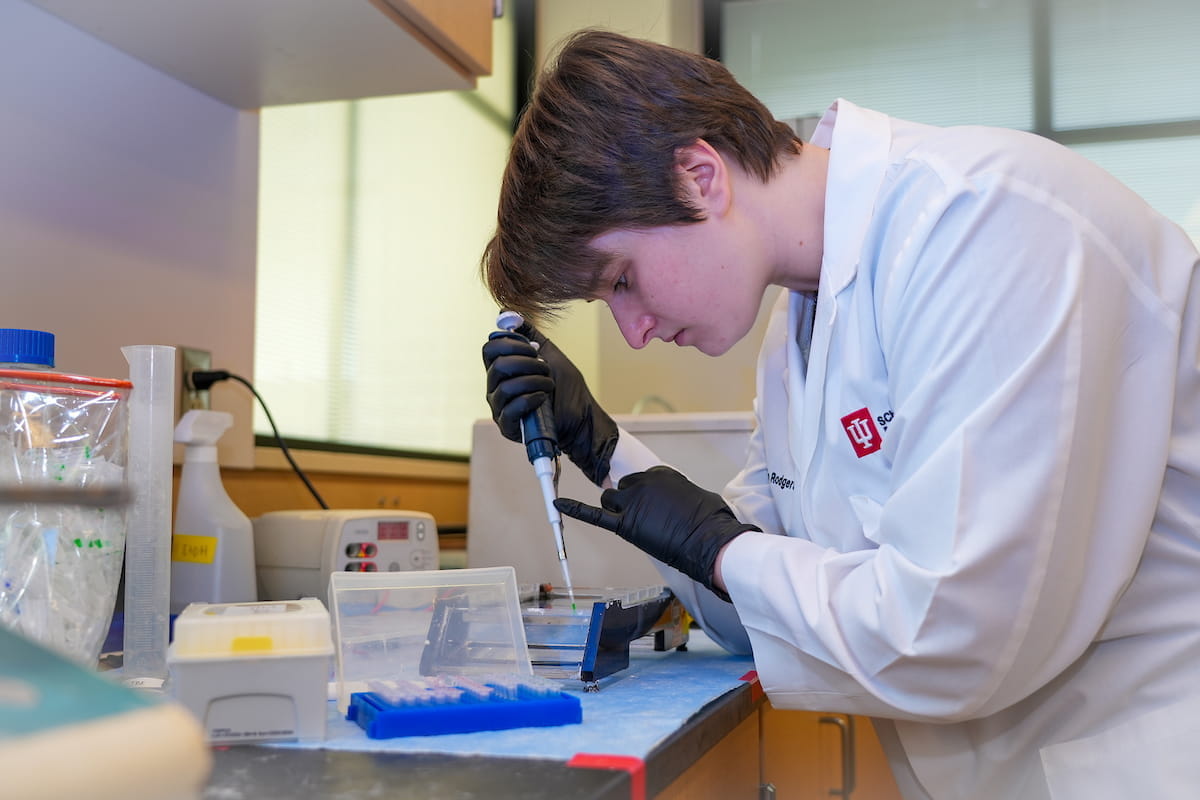Resources and Support for Researchers

-
Independent Investigator Incubator
The Independent Investigator Incubator, also known as “I3,” is a program of the Indiana Clinical and Translational Sciences Institute (CTSI). The program matches established faculty mentors with early career mentees with a focus on helping the mentees secure research funding. Mentors in the program have a proven track record in securing extramural grant funding and are passionate about mentoring. Matches are made independent of research expertise to provide a unique perspective and input.
-
Project Development Teams
Another program of the Indiana CTSI, Project Development Teams (PDTs) give researchers access to experts who serve as "one-stop shops" by connecting investigators with a variety of specialties including protocol development, pilot funding, biostatistics support, and more. These multidisciplinary teams of experts can help researchers implement high-quality pilot projects that generate successful external grant submissions.
-
Mentoring Resources
The IU School of Medicine’s Office of Faculty Affairs and Professional Development has gathered resources to support faculty mentoring programs, including models of mentoring and a toolkit to help faculty establish mentoring relationships.
-
Career Development Consultations
The Office of Faculty Affairs and Professional Development also offers career development consultations for those seeking guidance on a variety of topics such as promotion and tenure.
-
Nature Masterclasses
IU School of Medicine researchers have access to Nature Materclasses, on-demand online courses that share techniques and strategies to help improve your skills and confidence across many research activities, including grant writing, data analysis, peer review and more.
Guidelines and requirements
-
Collaborative Institutional Training Initiative
The Collaborative Institutional Training Initiative (CITI) provides peer-reviewed, web-based educational courses in research, ethics, regulatory oversight, responsible conduct of research, research administration, and other topics. CITI courses are used worldwide by more than 2,200 organizations and more than 1 million learners around the world annually.
-
Required Trainings
Training requirements depend on the type of research you plan to do. For example, if you will be handling biological materials, such as bloodborne pathogens, you must complete biosafety training. At IU, compliance areas include animal care and use, biosafety, human subjects, radiation safety, and the responsible conduct of research. This training is required before you begin your work.
-
Office of Clinical Research
One of the most important aspects of conducting clinical research is ensuring that all required federal, state, and institutional laws, policies, and regulations are followed. The Office of Clinical Research for Indiana (OCR) provides essential services such as the review and negotiation of industry clinical study contracts and management of research systems including OnCore, IU’s clinical research management system. All clinical researchers at the IU School of Medicine should work with OCR staff to guarantee compliance.
Communicating your work
-
Media Relations
The IU School of Medicine’s Office of Strategic Communications and Visual Media provides media relations support to faculty, staff, and students interested in sharing their work with journalists and, ultimately, the public. Communicating your research to the public is an important part of our mission as a public university, so it’s a good idea to practice in advance of these opportunities. Experts are available to help researchers develop or refine their communication skills in preparation for interviews with media or other public appearances. Contact Rory Appleton, public relations manager, to schedule a media training. You can also contact Rory for help facilitating interviews with and fielding other requests from journalists.
-
Science Communication
Researchers can take advantage of the IU School of Medicine’s Communicating Science program, inspired by the Alan Alda Center for Communicating Science. The program offers training for scientists and health professionals to communicate with the public, public officials, the media and others outside their disciplines.
-
Social Media
Social media is an increasingly popular way to share your knowledge and expertise with people around the world. Researchers interested in learning more about social media best practices, including recommended platforms to use or how to grow their audiences, should contact Bailey England, social media specialist, to request more information or schedule a consultation.
-
Photography, Videography and Graphic Design
Visuals are an important form of communication, especially when explaining complex topics like science and medicine. The IU School of Medicine’s Office of Strategic Communications and Visual Media offers photography, videography and graphic design services that investigators can use to help illustrate their research. Contact the visual media team to request visual communication support.